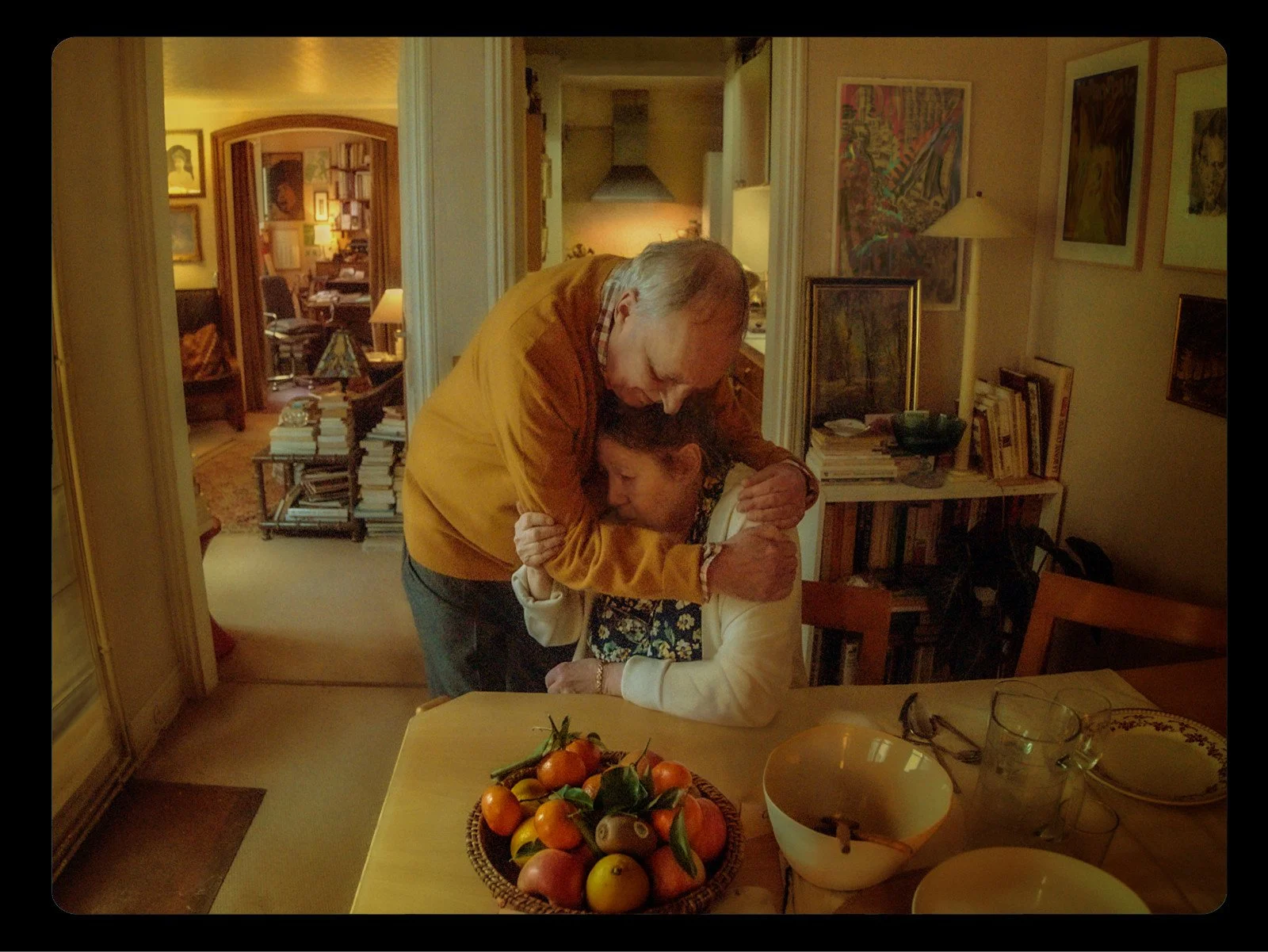Vortex: Into The Dark Again With Gaspar Noé, This Time With Empathy
By Liam Lacey
Rating: A
Since Gaspar Noé crashed onto the international cinema scene with his 1998 Cannes feature debut I Stand Alone — about a homicidal, incestuous butcher — the Argentinian-born director, now 58, has earned praise and opprobrium for his combination of typically gruesome content (acid trips, murder, incest) offered with a provoking, almost jaunty, cinematic contrivance.
His director’s statement for his 2018 film Climax read as follows: “You despised I Stand Alone. You hated Irréversible. You loathed Enter The Void. You cursed Love. Now try Climax, my new film, Gaspar Noé.”
There have been two films since then, including the 51-minute experimental Lux Æterna (2019) which will be released in North America later this month, and Vortex, which debuted at Cannes last year.
Vortex is, as expected, disturbing, but from a vantage of empathy rather than revulsion, no doubt influenced by the director’s brain hemorrhage before the film was shot.
Vortex is about old age, the shutting down of the mind and body, prelude to the end of all the stories. Most of its 145-minute running time takes place inside a poster-filled and book-stuffed Paris apartment, the home of an elderly French couple, who are known only as He and She.
He is a film scholar (played by Italian horror master Dario Argento) with a heart condition. She’s a retired psychiatrist (Françoise Lebrun, best known for Jean Eustache’s The Mother and the Whore) who has rapidly advancing dementia.
The film begins with a dedication: “To all those whose brains will decompose before their hearts.” From there, we cut to a black-and-white 1965 film clip of an angelic young Françoise Hardy singing “Mon amie la rose,” a sugary lament about life’s brevity.
There’s a scene of the elderly couple enjoying a lunch with wine on their apartment balcony. She asks, “Life is a dream, isn’t it?” And he answers, “Yes, a dream within a dream.” They toast each other — and then we step over the edge of the vortex.
From there on, we’re stuck in the claustrophobic present for the next two-and-a-half hours, without the relief of flashbacks and only brief soujourns into the outside world. This confinement could be somewhere between unpleasant to unbearable but it’s neither, thanks to a masterstroke on Noé’s part.
Dementia has been a familiar subject in the last few years (Amour, Away from Her, Falling, The Father) but Noé uses an experimental technique to depict the isolation of the characters. After the first couple of scenes, the entire film is shot in split frame.
The husband and wife are living, in effect, in two separate cages, with a black bar between them. She obsesses about housework and putting things in order. He struggles to maintain his privacy in his study where he bangs out his book (about dreams and the cinema) on a typewriter. But he’s persistently interrupted when she goes wandering, or when she inadvertently leaves on the gas stove. One day, when he takes a shower, she begins gathering up his papers in one of her tidying-up campaigns, tearing up the manuscript he had and flushing it down the toilet.
The use of the split screen is both unpredictable and rigorously deliberate. (Poignantly, the right side of the screen goes blank when one of them dies.) Sometimes, the same character can be seen in both frames, sometimes the two sides come together in a divided widescreen shot.
That makes sense because the film is not, strictly, a two-hander. The couple have a son Stéphane (Alex Lutz), a filmmaker, recovering drug user, and single father who volunteers at a needle exchange. The father calls Stéphane for help with the mother and one evening the son shows up with his own little boy (Kylian Dheret). He finds his mother not recognizing him and struggling to complete a sentence.
Stéphane’s mother wants to know who the strange man is who keeps following her, meaning her husband. He tries to advise them, about finding a long-term care facility or at least a caregiver. The father struggles to form arguments against change (“It will be all right, it will be all right.”) The mother, frightened, confused, starts compulsively apologizing.
Apart from the inspired split-screen gimmick, the film works because the cast is superb, with Argento as the impatient, angry old lion holding on to his threads of power. Lebrun’s performance, though, is the heart of the film.
Most of the time she is silent, while her eyes register fear, vulnerability, and moments of tenderness toward the man she intermittently recognizes as her life-long companion. Words such as “redemptive” or “hopeful” barely apply but there’s a clarifying shock in how she depicts humanity reduced to its last flickers. A nightmare, too, is a kind of dream.
Vortex. Written and directed by Gaspar Noé. Starring Françoise Lebrun, Dario Argento, Alex Lutz, Kylian Dheret. Currently screening at the TIFF Bell Lightbox.


